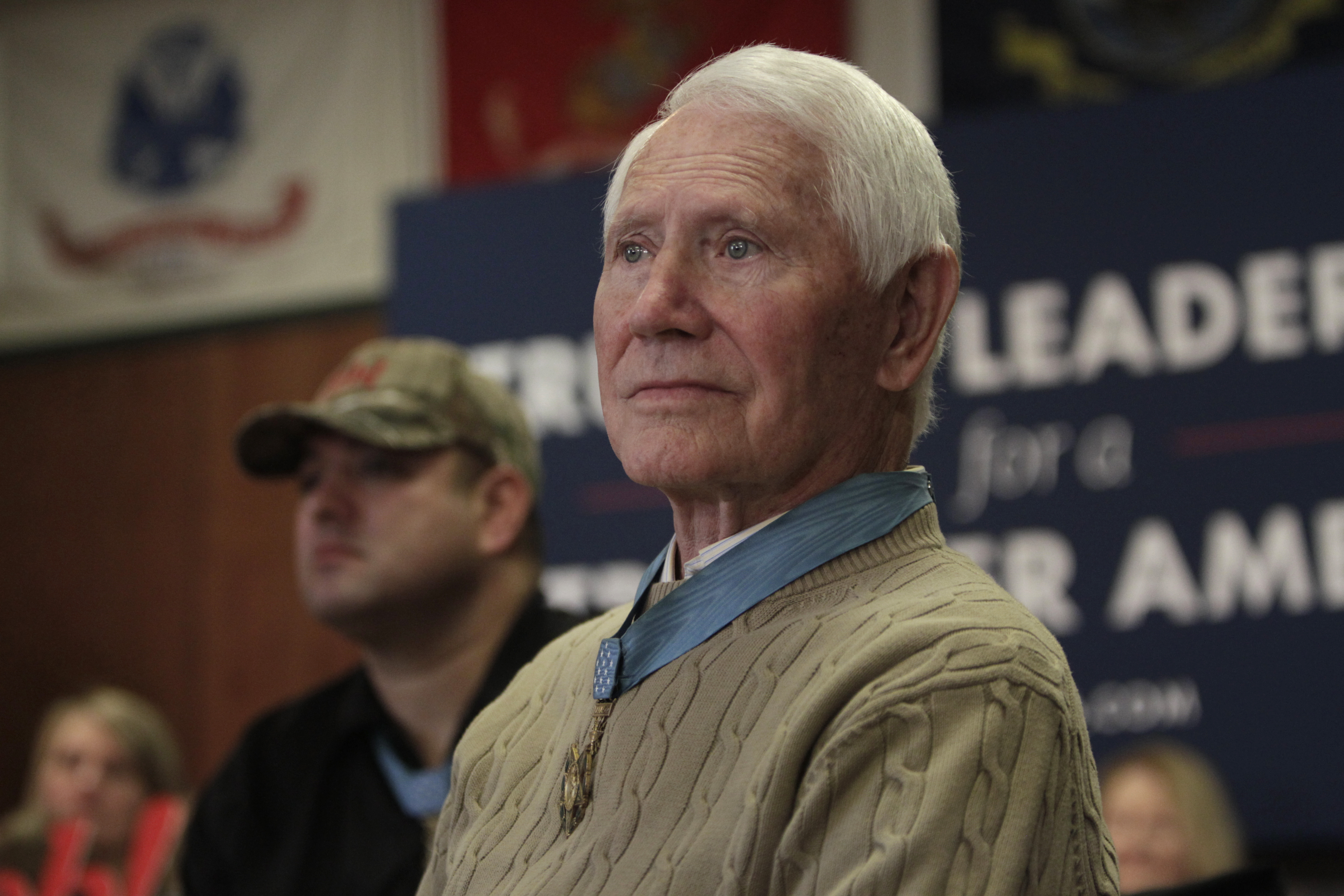
Leo Thorsness, a Walnut Grove, Minn., native and recipient of the Medal of Honor, has died at 85.
He enlisted in the Air Force after graduating from college in South Dakota, serving in the Strategic Air Command.
“I grew up in a farm between Walnut Grove and Storden, Minnesota, we were farm people. I was brought up with discipline, I learned how to work hard; it was just expected of us,” he told MPR’s Mark Steil in 2007 interview.
But in 1967, his wingman was shot down over North Vietnam was shot down over North Vietnam. Thorness, flying an F-105, stuck around, according to the citation when his Medal of Honor was presented.
As pilot of an F- 105 aircraft, Lieutenant Colonel Thorsness was on a surface-to-air missile suppression mission over North Vietnam. Lieutenant Colonel Thorsness and his wingman attacked and silenced a surface-to-air missile site with air-to-ground missiles, and then destroyed a second surface-to-air missile site with bombs. In the attack on the second missile site, Lieutenant Colonel Thorsness’ wingman was shot down by intensive anti-aircraft fire, and the two crewmembers abandoned their aircraft. Lieutenant Colonel Thorsness circled the descending parachutes to keep the crewmembers in sight and relay their position to the Search and Rescue Center. During this maneuver, a MIG-17 was sighted in the area.
Lieutenant Colonel Thorsness immediately initiated an attack and destroyed the MIG. Because his aircraft was low on fuel, he was forced to depart the area in search of a tanker. Upon being advised that two helicopters were orbiting over the downed crew’s position and that there were hostile MlGs in the area posing a serious threat to the helicopters, Lieutenant Colonel Thorsness, despite his low fuel condition, decided to return alone through a hostile environment of surface-to-air missile and anti-aircraft defenses to the downed crew’s position. As he approached the area, he spotted four MIG-17 aircraft and immediately initiated an attack on the MlGs, damaging one and driving the others away from the rescue scene.
When it became apparent that an aircraft in the area was critically low on fuel and the crew would have to abandon the aircraft unless they could reach a tanker, Lieutenant Colonel Thorsness, although critically short on fuel himself, helped to avert further possible loss of life and a friendly aircraft by recovering at a forward operating base, thus allowing the aircraft in emergency fuel condition to refuel safely. Lieutenant Colonel Thorsness’ extraordinary heroism, self-sacrifice, and personal bravery involving conspicuous risk of life were in the highest traditions of the military service, and have reflected great credit upon himself and the United States Air Force.
Thorsness spent six years in a POW camp and was awarded the Medal by President Nixon when the war ended.
“Being tortured is just horrendously painful,” Thorsness told Steil. “It’s hard to believe how inhumane one person can be to another.”
He returned to South Dakota and lost a 1974 Senate race to George McGovern, a hero from an earlier war. And he lost a race to Tom Daschle in 1978 before leaving the region.
Five people from Minnesota received the Medal of Honor for their service in Vietnam, four of them posthumously.
